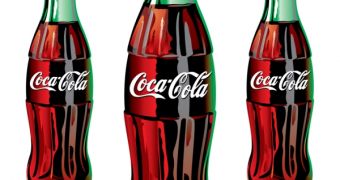Amidst ongoing debate over the soda tax that is believed to actively bring the obesity epidemics to a halt, or at least to contribute to putting a damper on it, Coca Cola has announced a rather surprising move, that of including a detailed calorie count on the labels of each beverage, WSJ Blogs informs. The change will be complete by the end of 2011, with containers already coming with the altered labels in Europe and Australia.
As easily imagined, Coca Cola’s announcement did not fail to generate a controversy, with some speculating that it had nothing to do with the company’s concern over the health of its customers, but rather with it finding a way to avoid the soda tax. Under the guise of good faith lies a not-too-subtle attempt at escaping government regulation, they say. Of course, Coca Cola Co. is adamant the change has been a long time coming and, most importantly, that it has nothing to do with ongoing talk to push the so-called soda tax.
“Coca-Cola Co. said yesterday that it will put a calorie count on the front of almost all the drinks it sells around the world. Soda has been getting slapped around lately in public-health circles, with surgary [sic] drinks cited as a key driver of obesity, and some officials calling for a soda tax to help pay for health care. The American Beverage Association, a trade group that counts Coca-Cola among its members, has been fighting the soda tax and argues that sodas don’t ‘uniquely contribute to obesity.’” WSJ writes.
“So even as the beverage industry is opposing a public-health push on the soda-tax front, Coca-Cola is getting ahead of the curve on another public-health issue, more prominent posting of calorie information. The company said the labeling will go on almost all of the company’s products, including ‘all sparkling beverages, teas, energy drinks, flavored water beverages, juices and juice drinks.’ The more-prominent labeling is already in place in Europe and Australia, it’s currently being rolled out in Mexico and the U.S. and will be in place world-wide by the end of 2011.” the aforementioned source further explains.
As we also informed you a while ago, the soda tax is exactly what its name implies: an extra tax that customers would have to pay, which would translate in a higher price for each container of such a beverage. Upping the price would, in turn, discourage people from buying so much soda and, with the decrease in intake, a decrease in the number of obesity cases would also be noted. Of course, it’s clear why companies producing such beverages are fighting the idea of the tax, since it would also translate in poorer sales.

 14 DAY TRIAL //
14 DAY TRIAL //